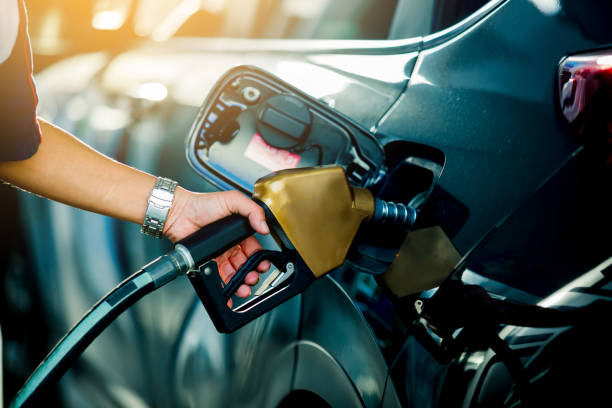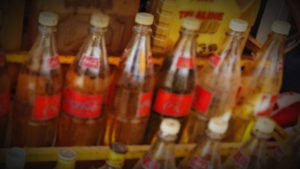Source: DOE Website
WORLD OIL PRICES (October 11-15, 2021 trading days)
Dubai crude has increased week-on-week by almost US$3.00/bbl. MOPS gasoline and MOPS diesel have also increased by nearly US$5.25 per barrel and around US$ 3.80 per barrel, respectively.
Reasons for the Price Adjustment
- Following US DOE’s announcement of not releasing additional crude stocks from its Strategic Reserve, the oil market again shifted its focus on tight supply and improving oil demand. The improving COVID-19 situation, easing of mobility restrictions and re-opening of borders by many countries fueled the prospects of higher oil demand.
- Gas to oil switching from utilities and industrial sectors amid a broader rally in the energy commodities space also continues to boost crude oil demand.
- Larger than expected build in US crude oil stocks of 6.09 million barrels to 426.98 million barrels for the week ending Oct.14 failed to weigh on market sentiment. Thus, crude oil prices continued the uptrend with US benchmark-WTI prices breached $80/bbl for the first time since 2014 and Europe’s ICE Brent front month futures rose to $84/b on Oct.14 Asian close.
- Asian gasoline fundamental continues to tighten on uptick in regional demand amid ongoing supply tightness. Declining coronavirus cases, higher vaccination rates and upcoming string of festivals continue to propel Indian gasoline demand while re-opening of borders and resumption of interstate travel in Thailand and Malaysia, respectively, added to bullish market sentiment.
o Lower gasoline exports from China that are likely to persist through Q4 continues to tighten the Asian gasoline market.
- ​​​​Supply squeeze amid robust arbitrage economics to send gasoil/diesel barrels to the West continue to support low sulphur gasoil market while medium sulphur grade sees steady recovery from Southeast Asia.
o Market estimates though see China’s October gasoil exports are likely to fall 47% month on month on reduced export quotas and strong domestic market.
FOREX: Philippine peso depreciated week-on-week against the US dollar by P0.01 to P50.70 from P50.69 in previous week.
Other recommended reference sites:
• http://www.aip.com.au/pricing
• http://www.indexmundi.com/commodities/?commodity=crude-oil-dubai
• https://www.quandl.com/data/ODA/POILDUB_USD-Dubai-Crude-Oil-Price
DOMESTIC OIL PRICES
Effective 19 October 2021, the oil companies implemented a price increase in domestic oil products, i.e. P1.80 per liter for gasoline, P1.40-P1.50 per liter for diesel and P1.30 per liter for kerosene.
These resulted to the year-to-date adjustments to stand at a total net increase of P19.65/liter for gasoline, P18.00/liter for diesel and P15.49/liter for kerosene.
For the updated prevailing retail pump price, please browse this link: https://www.doe.gov.ph/price-monitoring-charts?q=retail-pump-prices-metro-manila.
For more information, call the
Department of Energy
Pricing: 840-2187
LPG: 840-2130
Fuels: 840-5669
SMS: (0915) 4469421
Email: oilmonitor@doe.gov.ph
Website: https://www.doe.gov.ph
 A number of House Bills (HB4550, HB4711, HB5172 and HB7928) have been filed in Congress that intends to repeal or amend certain provision of the Downstream Oil Deregulation Law (RA 8479).
A number of House Bills (HB4550, HB4711, HB5172 and HB7928) have been filed in Congress that intends to repeal or amend certain provision of the Downstream Oil Deregulation Law (RA 8479).
With reference to the House Committee on Energy hearings on the subject matter, the Philippine Institute of Petroleum (PIP) has manifested the following points to the Congress:
- Local oil price movements follow the trend of international oil price movements. Street level pricing or retail pricing on the other hand, is ultimately determined by competition in the particular location as all retailers (dealers) will always want to stay competitive with neighboring retail stations. Healthy competition brings with it a natural check and balance.
- The Oil Deregulation Law (RA 8479) has brought tremendous benefits to the oil industry.
- The dominant market shares enjoyed by the so called big three oil companies pre-oil deregulation has now been broken up by the entry of numerous oil companies. As of 2019 data there are about 9,003 retails stations in the entire country. Of the total 9,003 retails stations, about 3,736 (41%) are oil majors and 5,267 (59%) are new players.
- Deregulation brought about competition which saw the introduction of better-quality products, better retail station facilities and services, innovative promotions and also intense price discounting. Consumers enjoyed increased power of choice.
- Deregulation lowered the industry’s barrier to entry and has given business opportunities to thousands of local entrepreneurs who have opened retail stations. This also saw the related growth of allied service providers like contractors, equipment suppliers and provided an efficient route to market for various non fuel products now sold in retail stations;
- Regulation and/or Price Control will always diminish the attractiveness of an industry and can discourage potential new investments. This can be from the opening of new retail station by entrepreneurs, job creation for service providers and even to the entry of new oil companies.;
- A deregulated industry brings about a more buoyant competitive market environment. It also stimulates investments and job creation. Consumers benefit from increased power of choice, better quality products and a safer and pleasant refueling experience.
The government should continue focusing on promoting more competition, attracting more new players, encouraging more innovations as this will ultimately redound to an even heightened competitive environment that will impact pricing and quality of products and services.
PIP’s Position on the Oil Price Movements
Below are some of the comments and position of PIP pertaining to oil price movements and competition:
- The weekly oil price movements announced by the downstream oil companies, whether an increase or decrease, will follow the trajectory of global/regional oil pricing as revealed in the Mean of Platts Singapore (MOPS). We deny the assertions that oil companies are quick to reflect oil price increases but is not too quick in reflecting price decreases;
- There are many factors that influence international oil prices. Primary will be supply and demand and geo-political tensions. The onset of the COVID-19 pandemic caused a global slump in demand thus oil prices went down significantly. Now that some countries are opening up, and economies starts recovering, demand for fuel is increasing thus we see increases in fuel prices;
- Given the deregulated nature of the industry, street level competition is the ultimate determinant of prices thus the retailers are given certain latitude to adjust their prices to match/beat competition in order to be competitive;
- Many oil companies, including members of the Philippine Institute of Petroleum has challenged the legality of DOE’s DC2019-005-008 that mandates the unbundling of pricing components. This goes contrary to the Oil Deregulation Law and it jeopardizes the oil companies many trade and marketing secrets. This will also cause the oil companies to violate their non-Disclosure agreements with their various suppliers of products and services;
- The pricing disparity in Baguio versus that of Rosario, La Union is influenced by many factors such as competition, cost of doing business and logistical considerations but is caused primarily by comparing Baguio prices to a location where intense price competition is happening (Rosario, La Union);
 Technology Solution Retail Outlets (TSRO), are commonly known as Fuel Vending Machines that addresses the fuel requirement of locations certified by LGU’s to be catered by the “bote-bote” (soda bottles) trade.
Technology Solution Retail Outlets (TSRO), are commonly known as Fuel Vending Machines that addresses the fuel requirement of locations certified by LGU’s to be catered by the “bote-bote” (soda bottles) trade.
The “bote-bote” retailing of fuel is deemed dangerous to the health and safety of both the consumer and the retailer plus the source and quality of the fuel being sold cannot be ascertained to be compliant to the prescribed standards.
TSROs, like the fuel retailing outlets are also governed by the DOE’s Retail Rules (DC2017-11-0011), which specifically stipulates under Rule IV b. TSRO, the list of requirements for compliance:
- Secure Certificate of Endorsement from LGU – Certifying that a TSRO intends to address the “bote-bote” retailing in the area being applied for;
- Secure Certificate of Compliance (COC) from DOE;
- Observance of 1 kilometer radius from another Retail Outlet;
- No other commercial establishment shall installed/constructed with the Retail Outlet rather than those necessary for its operation;
- The vehicle being serviced and the delivery of the liquid fuels by the tank truck shall at all times be inside the business premises;
- One (1) meter set back distance shall be maintained in (a) the cashier’s boots or dispensing pump to firewalls and (b) tank trucks to firewalls (during supply operations).
Moreover, the DOE issued an Addendum to the Rule IV b. which allows a maximum of 2000 liters capacity for above ground storage tank (both for gasoline and diesel) that is petroleum compatible except plastic (HDPE) and appropriately protected with no visible mark of corrosion. In addition, display of price and volume (in liters) should be present for dispensing pumps that should be equipped with safety breakaway couplings and a petroleum compatible hose not to exceed 5.5 meters. Additionally, automatic shut off nozzles must also be present in the dispensing pumps.
TSROs are reportedly growing in several areas across the country. According to reports, there are more than 200 TSROs operating in Oriental Mindoro and MIMAROPA (Marinduque, Romblon, Palawan). Expansion areas reportedly includes Region 6 – Western Visayas consisting of 6 provinces namely Aklan, Antique, Negros Occidental, Capiz, Guimaras and Iloilo.
PIP Position
PIP supports the government initiatives to counter the “bote-bote” or soda bottle trading of fuel as this practice is unsafe and product quality is not assured. Additionally, TSROs provide business opportunities and employment to small and medium sized entrepreneurs in the locations where they operate.
However, TSROs should also be supervised and monitored to ensure equal compliance to the DOE’s Retailing Rules and other government regulations to ensure safety and a level playing field. In summary, PIP has expressed concerns on the following:
- Health and Safety;
- Proliferation of TSROs in non “bote-bote” areas; and
- Level playing field.
On health and safety concerns, PIP has recommended that above-ground storage for 2000 Liters should be reconsidered as the Fire Code only allows a maximum of 454 liters with each container not exceeding 227 liters. Above ground storage of fuel also requires a special concrete enclosure with mandated set back requirements from potential sources of ignition and nearby structures. In addition to this, the use of reconditioned drums should also be prohibited as their integrity cannot be ascertained.
There are reported cases already that TSRO’s are seen being established in urban locations. There are online advertisements of TSRO equipment being offered at a discount for Metro Manila and surrounding locations. The DOE in a recent forum admitted that their official records as of September only shows a very limited number of Certificate of Compliance being given to TSRO’s and that the Fuel Vending Machines does not have any local certifying mark like the PS mark which can attest to its quality and safety.
PIP has always advocated for a level playing field amongst all players, whether these are TSRO’s, Marine Outlets and the regular fuel retail outlets. TSRO’s should also be monitored for compliance to BIR registration and issuance of receipts, compliance with fuel marking certificates and bio fuel laws, compliance to the stringent requirements of the Department of Energy’s (DOE) Certificate of Compliance (CoC) and reportorial requirements and to the safety standards mandated by the Bureau of Fire Protection’s (BFP) Fire safety inspection and certificate.
A level playing field promotes investments, fair & healthy competition, consumer safety and tax generation for the government. Government efforts should be intensified to ensure that all abide by the rules and regulations in place, whether they are TSRO’s or regular retail fuel outlets.